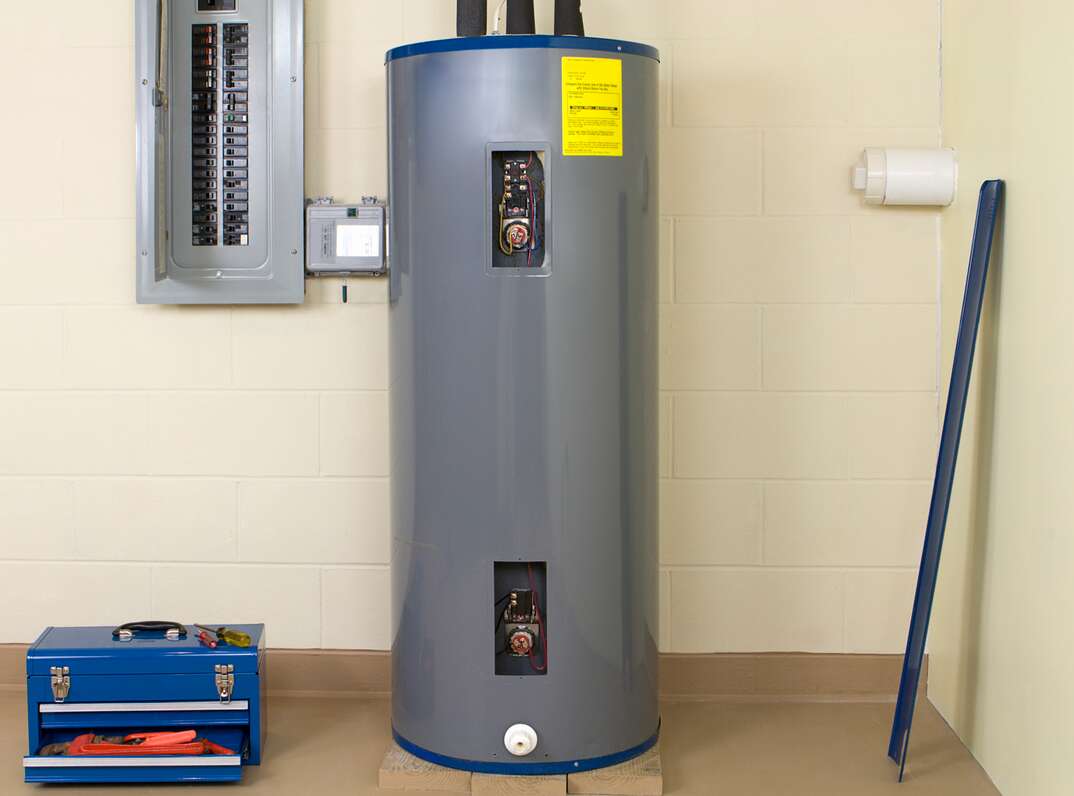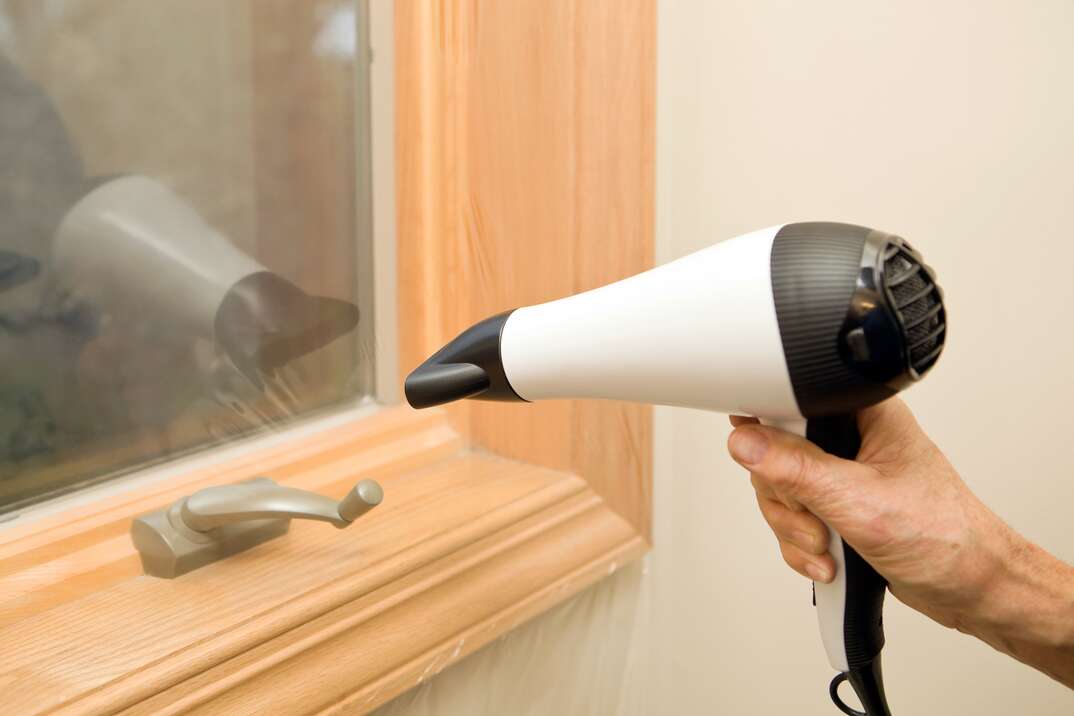Don’t Go Broke for Repairs: Get Ahead on Home Maintenance
Homeownership comes with some guarantees — for example, you’re guaranteed at some point to have to replace a major appliance or structural component, sometimes at great expense. It's not a matter of if, but when.
This May Also Interest You: What's the Difference Between Home Warranty Vs. Home Insurance?
Read on to learn how to mitigate your risk of a financial setback due to emergency home-repair services.
How to Protect Yourself From Unexpected Home Repair Bills
One of the ways to protect yourself is by investing in maintenance. Properly maintaining the materials and systems in your home will keep them functioning longer and save you the stress and convenience costs of emergency replacements.
Here are some regular maintenance tasks you should stay on top of in order to avoid trouble:
- Clean and inspect your roof regularly.
- Call a professional to inspect and clean your heating, ventilation and air conditioning system regularly.
- Have your water heater flushed as recommended.
If you’re not confident in your ability to keep track of what needs to be done and when, you could also have your home systems professionally serviced and inspected on a predetermined schedule. Service programs are available through providers that specialize in roofing, HVAC, water heaters, septic systems, and more, allowing you to leave it to the pros.
Are Repair Prices Different for Emergency Situations?
Often the answer is yes, and that’s where research ahead of time can pay off. Not everyone charges more for emergency calls. Likewise, not everyone is available to help after regular service hours. If you have a relationship with a service or company that has been taking care of your ongoing maintenance, they’re the ones who are most likely going to help you in a pinch. After all, if an HVAC company performs regular maintenance on your system twice a year:
- You’re far less likely to have an emergency.
- They’ll be less likely to upcharge when you do.
AC emergencies inevitably happen in the hottest part of the summer, and the first company you call is likely to be booked for a couple of days. But if you already have an established relationship with that provider, the more likely you’ll be to receive priority service.
Does It Cost More to Get Service After Hours?
Similar to the emergency-service question, yes and no. Plumbing companies often upcharge for after-hours service, while roofing companies might roll the cost of temporary fixes into the cost of replacing the roof.
But it makes more sense to spend a little now to keep from spending a lot later. If you keep your household systems properly maintained, they'll be far less likely to fail and necessitate replacement. The pros know when, say, your water heater is likely nearing the end of its useful life, so you can plan for major repairs — and it’s more cost-effective to plan ahead to replace your AC unit during the winter in a non-emergency situation when you're not having to compete for contractors with all the other people in emergency situations.
How to Budget for Emergency Repairs
Arming yourself with a few key facts will help you better budget your time and money, and be prepared for home-maintenance eventualities in some common areas, including...
...Your Roof
Depending on the materials and environment, your roof can last anywhere from 15 to 100 years. The average cost for a full roof replacement is around $10,000, but it can be much more than that.
...Your Water Heater
This will vary by brand, type and usage, but five to 15 years of use is typical. Replacements average $750 to $1,000.

...Your Heating and Air Conditioning
Central systems can work fine for 10 to 15 years depending on usage and maintenance. Total system replacements are common today because the EPA requires a new type of refrigerant that doesn’t work with older systems. Expect to pay $10,000 or more for a new system, depending on the size and the square footage of your house.
...Your Plumbing
Something like a sewer-line repair can average a few hundred dollars. The tricky part when it comes to plumbing is that it’s hidden in your walls and foundation. Plumbing issues often bring collateral damage to your house’s drywall, floors and other components — in which case that repair bill can balloon to a few thousand dollars.
Should I File a Claim for Emergency Repairs?
Homeowners insurance policies are not standardized nor do they cover everything that could possibly happen. So be sure to consult your insurance agent to help you decide when to file a claim for emergency repairs and when to simply eat the cost yourself.
What Are the Most Common Repairs?
Your roof is arguably the most common component of your house that needs to be repaired or replaced. After all, what takes a greater beating on a daily basis than the roof? Foundation repairs are also common and, although they tend to be more expensive, they also tend to be less urgent. Water-damage repairs are the third most common type for houses — usually resulting from damage to the roof, plumbing or even condensation overflow from the AC system.
More Related Articles:
What Are the Most Expensive Repairs on a Home?
The greatest expense for home repairs comes from the labor involved — and the most labor-intensive component of your home to fix is the foundation. Next, on average, is your HVAC system, then your roof, followed by plumbing.
How Much Should I Budget for Home Repairs?
Be sure you keep enough funds on hand to cover deductibles on your homeowners insurance policy, and think of it as your rainy-day savings. While, for example, your roof is likely covered under your homeowners insurance policy, you’re responsible for paying the deductible in the event of a repair or replacement. Deductibles range from flat rates to a percentage of the cost replacement cost. That could mean keeping a few thousand dollars in that rainy-day roof fund ... for when it hails. Keep up to date with your insurance-premium payments and review your coverages regularly to be sure you have your priority areas addressed.
Some contracting companies offer financing for the more expensive repairs, like roofing and HVAC, which may offer you a better interest rate than paying by credit card. Compare the interest rates on each option before you sign on the dotted line.
You can help prevent the need for emergency home repairs with a policy from HomeServe. We have a 24/7 repair hotline for our customers to call for local help when you need it. Learn how a HomeServe policy can bring you peace of mind.


